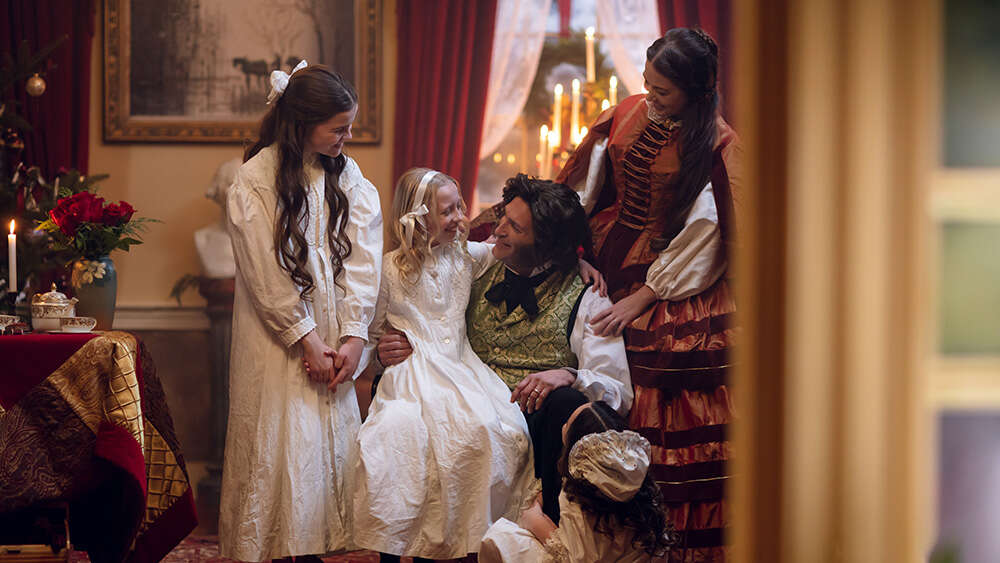Meet the poet who penned a carol of hope amidst despair
‘I Heard the Bells’ hits the big screen
Christmas is not always merry. Indeed, the season’s festivities can make some people’s despair feel particularly bitter.
This was the case for Henry Wadsworth Longfellow, one of America’s best-loved poets of the 19th century – and the subject of a new film I Heard the Bells, to be released in select Australian cinemas on 1 December.
The film takes viewers on a journey through Longfellow’s tragedies and his rediscovery of gospel hope, which reignites his faith and his passion for poetry.
The Christmas of 1863 was almost unbearable for Longfellow. His wife of 18 years, Fanny, had died two years earlier, after suffering fatal burns when her dress was accidentally set on fire. In his attempt to put out the flames, Longfellow was also severely burnt, meaning he couldn’t even attend Fanny’s funeral.
In earlier life, he was also no stranger to suffering, having lost his first wife Mary in 1835 due to an infection after a miscarriage. And he had also lost a baby daughter to illness in 1848. However, Fanny’s death left him “utterly wretched and overwhelmed – to the eyes of others, outwardly, calm; but inwardly bleeding to death,” as Longfellow said in a letter to his friend George William Curtis.
Then in December 1863, this widower with six children was dealt another blow. He received news that his son Charles had been badly injured in the civil war, and was returning home with a bullet wound that may cause paralysis.
“The death of the young men in the war . . . makes my heart bleed when ever I think of it,” Longfellow wrote to his friend Henry Ingersoll Bowditch.
Amidst this backdrop of despair and strife, Christmas Day dawned. Longfellow heard the Christmas bells ringing merrily in Cambridge. He set down in a poem this juxtaposition – that as “old, familiar carols play” and “the words repeat … peace on earth, good-will to men!” he felt anything but peaceful.
“And in despair I bowed my head,” wrote Longfellow in his poem titled ‘I Heard the Bells on Christmas Day’.
“There is no peace on earth,” I said; For hate is strong,
And mocks the song
Of peace on earth, good-will to men!”
And yet, despite the canons of war and his own despair which threaten to drown out the hopeful tunes of Christmas, by the end of the poem, Longfellow reveals a faith regained:
“Then pealed the bells more loud and deep:
“God is not dead, nor doth He sleep;
The Wrong shall fail, The Right prevail,
With peace on earth, good-will to men.”
The now-famous Christmas carol has been sung by the likes of Frank Sinatra, Harry Belafonte, Johnny Cash and Christian band Casting Crowns.
Longfellow’s poem was put to music by the English organist John Baptiste Calkin in 1872, set to the melody ‘Waltham’. Since then, the now-famous Christmas carol ‘I Heard the Bells’ has been sung by the likes of Frank Sinatra, Harry Belafonte, Johnny Cash and Christian band Casting Crowns.
While Longfellow’s life story itself holds enough drama to make I Heard the Bells a film worth seeing, it should hold even more pertinence for those of us who have experienced the tension between despair and joy at Christmas time. May it help serve as a reminder this Advent of our unshakeable, eternal hope in Christ.
You can find more information, including cinema locations, at iheardthebellsmovie.com.au.
Email This Story
Why not send this to a friend?


